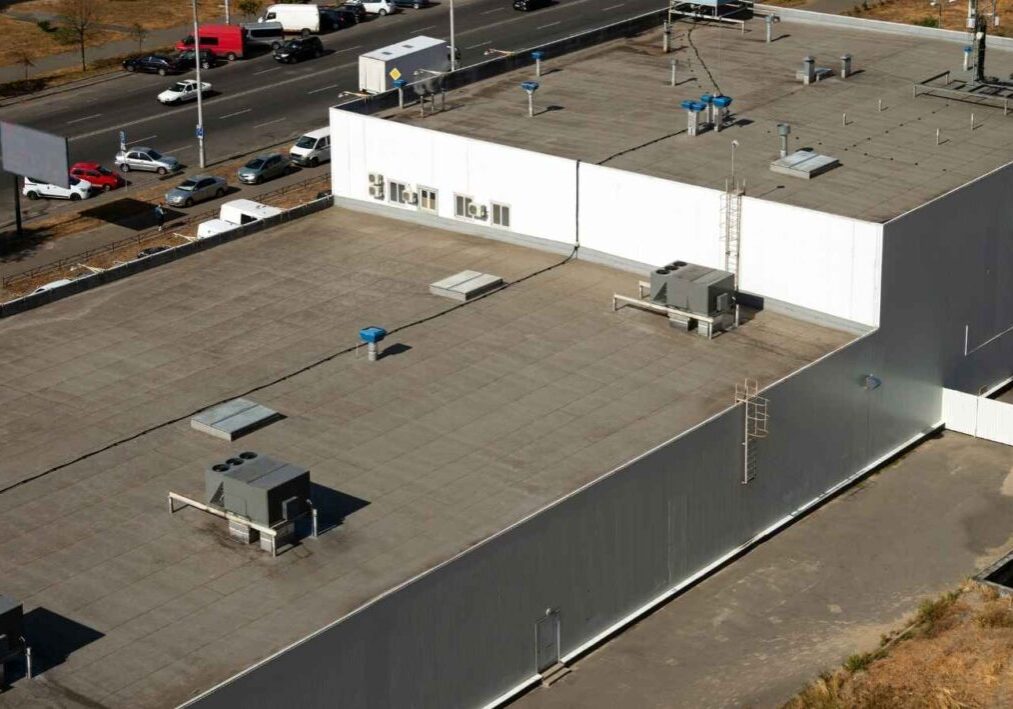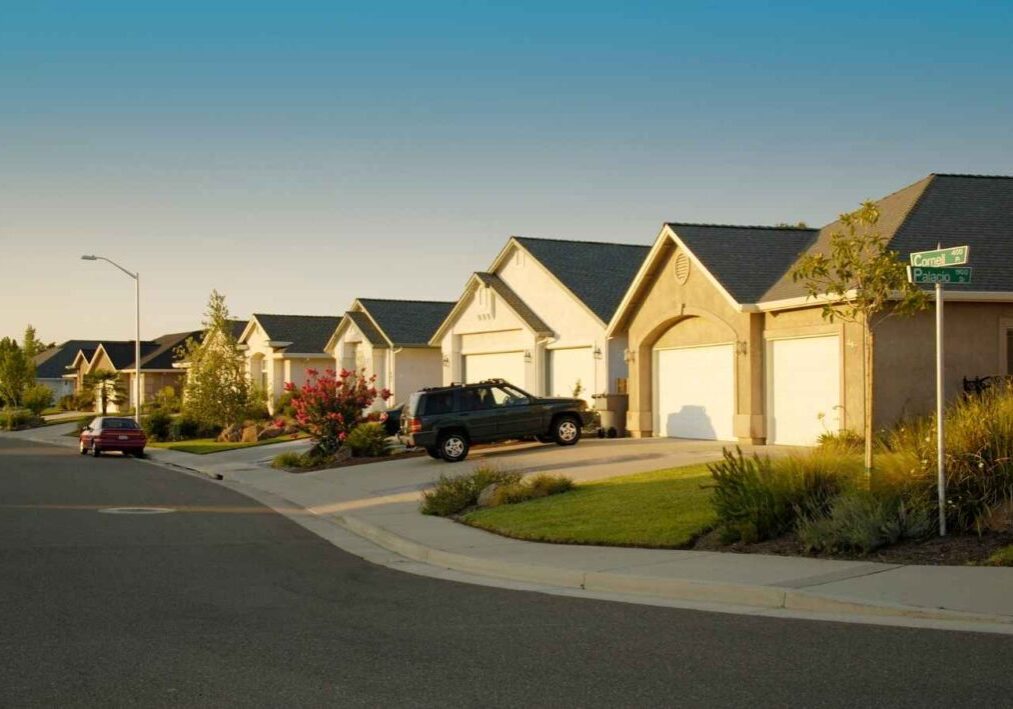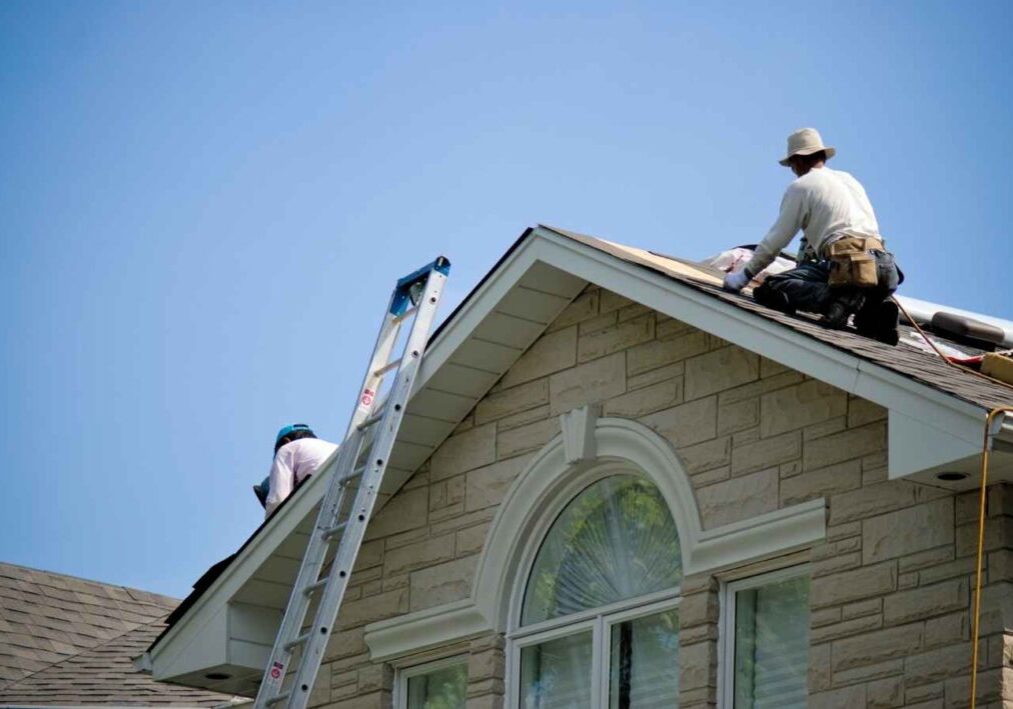Your business premises are more than mere structures; they stand as a testament to the strength and resilience of your enterprise. What safeguards it against nature’s fury? It’s none other than the formidable roof! Selecting the right roofing material can often be as complex as corporate decision-making. Rest assured, dear entrepreneurs; we are poised to navigate you through the intriguing realm of commercial roofing materials using an engaging discourse akin to pleasant corporate bantering. Let’s embark on this insightful journey to uncover the perfect shield for your commercial fortress!
Understanding the Commercial Roofing Landscape
Before we get into the specifics, let’s take a look at the commercial roofing environment as a whole. Commercial roofs are not the same as their residential equivalents. They frequently cover greater areas, have distinctive architectural characteristics, and must withstand increased foot traffic from HVAC systems and other equipment.
Let’s have a look at the roofing material contenders:
1. Versatile and Durable Asphalt Shingles
Why They Shine:
- Cost-Effective: Asphalt shingles are budget-friendly, making them an attractive option for businesses.
- Versatility: Aside from their inexpensive cost, asphalt shingles come in a variety of shapes and colors, allowing businesses to obtain the ideal appearance for their structures.
- Ease of Installation: Roofing contractors are well-versed in installing asphalt shingles, making the process relatively quick and straightforward.
- Durability: Asphalt shingles are known for their long lifespan and ability to withstand harsh weather conditions, providing businesses with a reliable roofing solution. Their low maintenance requirements make them a practical choice for commercial properties, saving both time and money in the long run.
Considerations:
- Lifespan: While durable, asphalt shingles might have a shorter lifespan compared to some other materials.
- Not Ideal for Flat Roofs: If your commercial property has a flat roof, asphalt shingles may not be the best fit. Flat roofs require a different type of roofing material, such as EPDM or TPO, which are specifically designed to provide proper drainage on flat surfaces.
- Heavy: Additionally, it is important to consider the weight of asphalt shingles, as they may not be suitable for structures that cannot support heavy loads.
2. Metal Roofing – The Durable Dynamo
Why They Shine:
- Longevity: Metal roofs boast an impressive lifespan, often exceeding 50 years. This longevity is due to their resistance to weather elements such as rain, snow, and UV rays. These metal roofs require minimal maintenance, saving homeowners time and money in the long run.
- Durability: They can withstand severe weather conditions, including heavy snow, hail, and high winds. This longevity is due to their resistance to harsh weather conditions such as extreme heat, heavy rain, and strong winds. Metal roofs are also resistant to fire, rot, and insect damage, making them a durable choice for homeowners.
- Energy Efficiency: Reflective coatings on metal roofs contribute to energy efficiency, keeping your commercial space cooler. This can lead to reduced energy consumption and lower cooling costs.
- Environment-Friendly: Metal roofs are often made from recycled materials, making them an environmentally friendly option for businesses looking to reduce their carbon footprint.
Considerations:
- Cost: While durable, the initial cost of metal roofing can be higher than some other options. However, the long-term cost benefits of metal roofs should not be overlooked. With their low maintenance requirements and extended lifespan, businesses can save money on repairs and replacements in the future. Metal roofs can increase the resale value of a commercial property, providing a return on investment over time.
- Professional Installation: Due to its unique installation requirements, it’s essential to have metal roofing installed by experienced professionals. Improper installation can lead to leaks and other issues that can be costly to fix. Hiring professionals ensures that the metal roof is installed correctly, maximizing its lifespan and performance.
3. Flat and Low-Slope Roofing: EPDM Rubber
The Sparkling Advantage:
- Weather Resistance: EPDM rubber is known for its exceptional weather resistance, making it ideal for flat or low-slope commercial roofs. EPDM rubber can withstand extreme temperatures, from freezing cold to scorching heat, without deteriorating or cracking. Also, it is highly resistant to UV radiation and ozone exposure, ensuring long-lasting performance and durability for the roofing system.
- Low Maintenance: Once installed, EPDM requires minimal maintenance, saving you time and money. EPDM rubber roofs do not require frequent inspections or repairs, reducing the need for ongoing maintenance. Its resistance to mold and mildew growth helps maintain a clean and visually appealing roof surface without the need for constant cleaning or treatments.
- Affordability: In terms of flat roofing, EPDM is cost-effective, providing good value for its durability. EPDM is an affordable option compared to other roofing materials such as asphalt or metal. Its long lifespan and low maintenance requirements make it a cost-effective choice in the long run. EPDM’s energy efficiency can help reduce heating and cooling costs, further adding to its affordability.
Considerations:
- Installation Challenges: Proper installation is crucial, and it’s recommended to hire experienced roofing professionals. EPDM roofing requires regular inspections and maintenance to ensure its longevity and effectiveness.
- Not Ideal for High-Traffic Roofs: EPDM roofing is known for its durability and resistance to weathering, making it an excellent choice for most roofs. However, it may not be the best option for roofs that experience heavy foot traffic, as constant walking can cause wear and tear on the material. It is important to consider the specific needs of your roof before deciding on EPDM as your roofing material.
4. Energy-Efficient and Modern TPO Roofing
The Sparkling Advantage:
- Energy Efficiency: TPO roofing reflects the sun’s rays, keeping your commercial space cooler and reducing energy costs.
- Durability: TPO roofing is known for its strength and resistance to damage from UV rays, chemicals, and punctures, ensuring a long-lasting solution for your commercial building.
- Aesthetic: Its modern design and sleek appearance can enhance the overall aesthetic appeal of your property.
- Ease of Installation: TPO roofing is often considered easier to install than some other commercial roofing materials. This can help reduce labor costs and minimize disruption to your business operations during the installation process.
- Variety of Options: Additionally, TPO roofing is available in a variety of colors, allowing you to choose a shade that complements your building’s exterior and brand image.
Considerations:
- Cost: While competitive, TPO roofing might be pricier than traditional options like asphalt shingles. However, the long-term cost savings of TPO roofing, such as its energy efficiency and durability, can outweigh the initial investment.
- Quality Matters: The quality of TPO membranes can vary, so it’s essential to choose a reputable supplier. A reputable supplier will ensure that you receive high-quality TPO membranes that are reliable and long-lasting.
5. Classic and Time-Tested Built-Up Roofing (BUR)
The Sparkling Advantage:
- Proven Track Record: BUR has been a stalwart in the commercial roofing world for decades, with a proven track record of durability. Its time-tested construction method, which involves layering multiple plies of roofing felts and asphalt, provides excellent protection against the elements and can withstand heavy foot traffic.
- Fire Resistance: BUR systems offer exceptional fire resistance, making them a popular choice for buildings with strict fire safety regulations.
- Customizable: BUR allows for customization, with the option to add additional layers for increased protection. These additional layers can also enhance the insulation properties of the roofing system, improving energy efficiency and reducing heating and cooling costs.
- Weather Resistance: BUR is known for its resilience against harsh weather conditions. The multiple layers of bitumen and felt in a BUR system provide added durability and protection against extreme weather events such as heavy rain, strong winds, and hail. This makes BUR an ideal choice for buildings located in areas prone to severe weather conditions.
Considerations:
- Heavyweight: BUR systems can be heavy, and your commercial property’s structure must be able to support the additional weight. It is important to consult with a structural engineer to ensure that the building can handle the load of a BUR system.
- Installation Complexity: Installing BUR requires skill and experience, so it’s crucial to hire seasoned roofing professionals. Improper installation can lead to leaks and other issues, compromising the effectiveness of the BUR system.
Choosing the Right Material: A Decision Matrix
How do you choose which roofing material is the hero your business property need now that we’ve met our contenders? Let us construct a choice matrix:
- Budget: What’s the financial landscape for your roofing project? Asphalt shingles and EPDM rubber tend to be more budget-friendly, while metal roofing and TPO may require a larger initial investment.
- Longevity: How long do you want your roof to stand tall? Metal roofing boasts an impressive lifespan, while asphalt shingles may need replacement sooner.
- Climate Considerations: Consider your local climate. Metal roofing excels in extreme weather conditions, while EPDM rubber is ideal for flat roofs in various climates.
- Energy Efficiency: If reducing energy costs is a priority, TPO or metal roofing may be your champions.
- Maintenance Preferences: Do you want a set-it-and-forget-it roof, or are you comfortable with periodic maintenance? EPDM rubber and metal roofing typically require less maintenance than other options.
- Aesthetic Appeal: How important is the look of your commercial property? Asphalt shingles offer versatility in terms of styles and colors, while metal roofing provides a modern and sleek appearance.
Consulting with Commercial Roofing Professionals in Chehalis
Making the appropriate roofing selection is critical for your roof’s durability. Consultation with experienced commercial roofing contractors in Chehalis can give tailored advice based on your unique requirements and the local environment.
Choosing the best roofing material for your commercial property is a long-term investment in the longevity and profitability of your company. Let your roof stand tall as a statement of your company’s power, whether you choose the timeless attractiveness of asphalt shingles or the contemporary efficiency of TPO roofing.
Share this post:



